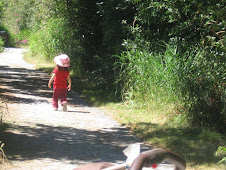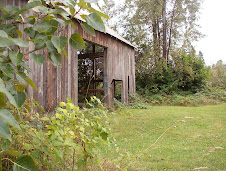Studies have shown that those who age successfully and who remain mentally alert well into their elder years share certain characteristics. It is a chosen lifestyle that will pay off by extending their enjoyment of life as they age.
One of the most important of these characteristics is being positive and feeling good about ourselves. Part of being positive is looking at our glass as being half full instead of half empty. And for this reason, it is important to think about how we view ourselves and how we perceive the world around us. It is also necessary to learn to adapt to life’s many challenges and by doing so, we will feel we have control over our lives. By being in control of life, it will be easier to continue, as we age, to sustain a social network with supportive relationships.
Those who are able to maintain this type of a lifestyle throughout their lives, studies show, seem to live longer, more actively and with less mental decline. Also because they have remained more active during their lives, they are often more pain-free and without the physical limitations that their counterparts who have become sedentary may experience. By remaining active, they will also likely continue to maintain friends and family relationships, travel, enjoy social activities in their communities, join clubs, and take courses thus keeping themselves more mentally alert. Some studies indicate that it is important to continue to learn new things and to pursue activities that are intellectually stimulating in order to challenge our brains, particularly as we age.
Memory difficulties are most often associated with aging. It is important to remember that tension and stress are associated with memory problems and so it is necessary to attempt to avoid stress as much as possible in our lives. Memory issues can be lessened also if we pay attention to new things, listen when we are spoken to, focus on what is important, and to verbalize and visualize.
By continuing to be active and involved with life most elders, with good health, perseverance, and admittedly some good luck should be able to remain mentally alert their whole lives.
Tuesday, September 22, 2009
Sunday, September 20, 2009
Aging - The Brain and Diet
Beginning in our sixties and seventies, there will be changes in our brains. These changes are a result of many things but they are particularly affected by our diets. When we were children, we had it drummed into our heads to ‘eat our fruit and vegetables’. It wasn’t only true then but continues to be important as we get older.
Our brains, like anything else, will become ‘rusty’ if we do not maintain it. One way to avoid the ‘rusty’ effect is to include a lot of antioxidant foods in our diet. Many of the antioxidant foods include those that are colorful such as: broccoli, spinach, brussel sprouts, beets, red peppers, carrots and yams. But the list also includes vegetables such as cauliflower, eggplant, alphalpha sprouts and corn which are lighter in color.
Fruits that are high in antioxidants include: blueberries, cranberries, blackberries, strawberries, raspberries, plums and oranges as well as dried fruit such as prunes, raisins and apricots. Nuts such as almonds and walnuts are also good antioxidants.
Foods that are high in Omega-3’s, such as fish, also help protect our brains from aging. Suggested fish are mackerel, herring, sardines, salmon, tuna and any white fish.
Meals should be balanced with breakfast being one of the most important meals of the day. It is important to eat low fat foods and not over indulge. Alcohol should only be taken in moderation because it restricts the blood flow to the brain, as does smoking. It is also believed that smoking in later life can promote mental decline. Coffee also should be taken in moderation.
A diet that is healthy for the brain is also good for the heart. And if followed, a diet such as the above will also help decrease the chances of obesity. Maintaining the health of our brain should not start when we first notice deterioration; it should begin when we are young and be continued throughout our lives.
Our brains, like anything else, will become ‘rusty’ if we do not maintain it. One way to avoid the ‘rusty’ effect is to include a lot of antioxidant foods in our diet. Many of the antioxidant foods include those that are colorful such as: broccoli, spinach, brussel sprouts, beets, red peppers, carrots and yams. But the list also includes vegetables such as cauliflower, eggplant, alphalpha sprouts and corn which are lighter in color.
Fruits that are high in antioxidants include: blueberries, cranberries, blackberries, strawberries, raspberries, plums and oranges as well as dried fruit such as prunes, raisins and apricots. Nuts such as almonds and walnuts are also good antioxidants.
Foods that are high in Omega-3’s, such as fish, also help protect our brains from aging. Suggested fish are mackerel, herring, sardines, salmon, tuna and any white fish.
Meals should be balanced with breakfast being one of the most important meals of the day. It is important to eat low fat foods and not over indulge. Alcohol should only be taken in moderation because it restricts the blood flow to the brain, as does smoking. It is also believed that smoking in later life can promote mental decline. Coffee also should be taken in moderation.
A diet that is healthy for the brain is also good for the heart. And if followed, a diet such as the above will also help decrease the chances of obesity. Maintaining the health of our brain should not start when we first notice deterioration; it should begin when we are young and be continued throughout our lives.
Thursday, September 17, 2009
Aging - Keeping A Good Attitude As We Age
How we think depends on how old we feel. Do we think we are old at fifty years? If so, then we will probably feel old too. During my life I have waged a war against aging; not by denying that I am aging but by the age I think ‘old’ is. ‘Old’ has always been determined in my thoughts as being at least 15 to 20 years older than I ever am at the time. And I have never said I’m too old for anything. Once you say you are too old, you will be.
In general I believe it is important to continue to try new things as we age even though I may not bungee jump or ride the Hollywood Tower of Terror at Disneyland. But I didn’t do those things when I was twenty either. I also believe it is important as we age to spend time with people who are younger than ourselves; their younger attitudes will make us feel upbeat and younger than if we surround ourselves only with those who are older.
Studies show that psychosocial factors as well as genes and general health will help to determine how we age. By being positive, happy, optimistic and making plans for the future will determine the image we have of ourselves and our feelings of ‘being old’. (I recently heard about a seventy-five year old man who was building himself a new house.)
Many times throughout my life I have thought, ‘I’m just starting my life’ which is similar to the well-known saying, ‘it’s the first day of the rest of my life’. With this attitude, the next thought must surely be, ‘how much can I accomplish in the rest of my life?’ The answer is, ‘a lot’. I believe that as we age it is important to grow in our thoughts, to continue to add to our own lives as well as to others; and to continually strive towards remaining independent by being involved in life in whatever capacity our bodies allow us to be. “I can” should, no matter our age, be important words in our vocabularies.
It is important also, I believe to be confident in our abilities and our roles in life. What is our role in life? Are we involved grandparents, volunteers for a worthy organization, or social butterflies? As long as we are happy in our roles and feel that our lives are full and we are accomplishing something, we will feel younger than if we were sitting uninvolved and with few social contacts.
I also believe that coping strategies have a large bearing on our health, as well as our aging process. There will be many changes in our lives, that we will have to adapt to and if we have good coping skills, will be easier to get through these challenges. (My mother is an example of not coping with changes. She moved into an assisted living home and didn’t adjust well; she was in and out of hospitals for several months even going so far as refusing to eat.)
So, think young, live young and you’ll feel young. Live life to its fullest – life is too short to feel old before you have to. You have to start when you’re young but remember that ‘young’ can be at any age.
In general I believe it is important to continue to try new things as we age even though I may not bungee jump or ride the Hollywood Tower of Terror at Disneyland. But I didn’t do those things when I was twenty either. I also believe it is important as we age to spend time with people who are younger than ourselves; their younger attitudes will make us feel upbeat and younger than if we surround ourselves only with those who are older.
Studies show that psychosocial factors as well as genes and general health will help to determine how we age. By being positive, happy, optimistic and making plans for the future will determine the image we have of ourselves and our feelings of ‘being old’. (I recently heard about a seventy-five year old man who was building himself a new house.)
Many times throughout my life I have thought, ‘I’m just starting my life’ which is similar to the well-known saying, ‘it’s the first day of the rest of my life’. With this attitude, the next thought must surely be, ‘how much can I accomplish in the rest of my life?’ The answer is, ‘a lot’. I believe that as we age it is important to grow in our thoughts, to continue to add to our own lives as well as to others; and to continually strive towards remaining independent by being involved in life in whatever capacity our bodies allow us to be. “I can” should, no matter our age, be important words in our vocabularies.
It is important also, I believe to be confident in our abilities and our roles in life. What is our role in life? Are we involved grandparents, volunteers for a worthy organization, or social butterflies? As long as we are happy in our roles and feel that our lives are full and we are accomplishing something, we will feel younger than if we were sitting uninvolved and with few social contacts.
I also believe that coping strategies have a large bearing on our health, as well as our aging process. There will be many changes in our lives, that we will have to adapt to and if we have good coping skills, will be easier to get through these challenges. (My mother is an example of not coping with changes. She moved into an assisted living home and didn’t adjust well; she was in and out of hospitals for several months even going so far as refusing to eat.)
So, think young, live young and you’ll feel young. Live life to its fullest – life is too short to feel old before you have to. You have to start when you’re young but remember that ‘young’ can be at any age.
Friday, September 11, 2009
Antiquated Laws
Is our world any crazier than it ever was? If we look at some of the old laws that are still in existence, but are not invoked, perhaps it isn’t after all.
Canada has old laws on their books that most of its citizens have never heard of and if challenged by either the citizens or the law courts have the potential for problems.
In Canada, it is illegal to pay for anything over 25 cents in pennies. What’s to be done with all the pennies? Perhaps it’s the pennies that should be outlawed.
Citizens cannot publicly remove bandages. If this law were ever invoked, many children would end up behind bars since they are notorious ‘bandage peelers’.
It is illegal to kill a sick person by frightening them. It would be difficult to determine how they were frightened and whether it was the frightening that killed them. Can ‘frightening’ be determined by autopsy?
It is also illegal to pretend to practice witchcraft. The supposition is that it is legal to practice witchcraft as long as you’re not pretending.
In Alberta, Canada, this outdated law has perhaps the most serious consequences if invoked, “if a person is released from prison, it is required that he/she be given a handgun with bullets and a horse so they can ride out of town.’
In Etobicoke, Ontario, a bylaw states that no more than 3.5 inches of water is allowed in a bathtub. If this law was taken seriously, the cost of officers would certainly increase and be a drain on our system.
In Cobourg, Ontario, it is required that if you have a water trough in your front yard, it must be filled by 5:00 a.m. It would probably be best to dispense with the water trough.
In Oshawa, Ontario, the city laws state that it is illegal to climb trees. This is not a biggie unless the trees are.
In Ottawa, Ontario, it is illegal to eat ice-cream on Bank Street on a Sunday.
Toronto, Ontario laws state you are not allowed to drag a dead horse down Yonge Street on a Sunday. If tested, I’m sure most streets would have the same law enacted.
In Wawa, Ontario the law states you cannot paint a ladder as it will be slippery when wet.
In Nova Scotia, a person is not allowed to water his lawn when it is raining.
Canada has old laws on their books that most of its citizens have never heard of and if challenged by either the citizens or the law courts have the potential for problems.
In Canada, it is illegal to pay for anything over 25 cents in pennies. What’s to be done with all the pennies? Perhaps it’s the pennies that should be outlawed.
Citizens cannot publicly remove bandages. If this law were ever invoked, many children would end up behind bars since they are notorious ‘bandage peelers’.
It is illegal to kill a sick person by frightening them. It would be difficult to determine how they were frightened and whether it was the frightening that killed them. Can ‘frightening’ be determined by autopsy?
It is also illegal to pretend to practice witchcraft. The supposition is that it is legal to practice witchcraft as long as you’re not pretending.
In Alberta, Canada, this outdated law has perhaps the most serious consequences if invoked, “if a person is released from prison, it is required that he/she be given a handgun with bullets and a horse so they can ride out of town.’
In Etobicoke, Ontario, a bylaw states that no more than 3.5 inches of water is allowed in a bathtub. If this law was taken seriously, the cost of officers would certainly increase and be a drain on our system.
In Cobourg, Ontario, it is required that if you have a water trough in your front yard, it must be filled by 5:00 a.m. It would probably be best to dispense with the water trough.
In Oshawa, Ontario, the city laws state that it is illegal to climb trees. This is not a biggie unless the trees are.
In Ottawa, Ontario, it is illegal to eat ice-cream on Bank Street on a Sunday.
Toronto, Ontario laws state you are not allowed to drag a dead horse down Yonge Street on a Sunday. If tested, I’m sure most streets would have the same law enacted.
In Wawa, Ontario the law states you cannot paint a ladder as it will be slippery when wet.
In Nova Scotia, a person is not allowed to water his lawn when it is raining.
Subscribe to:
Comments (Atom)




















































































